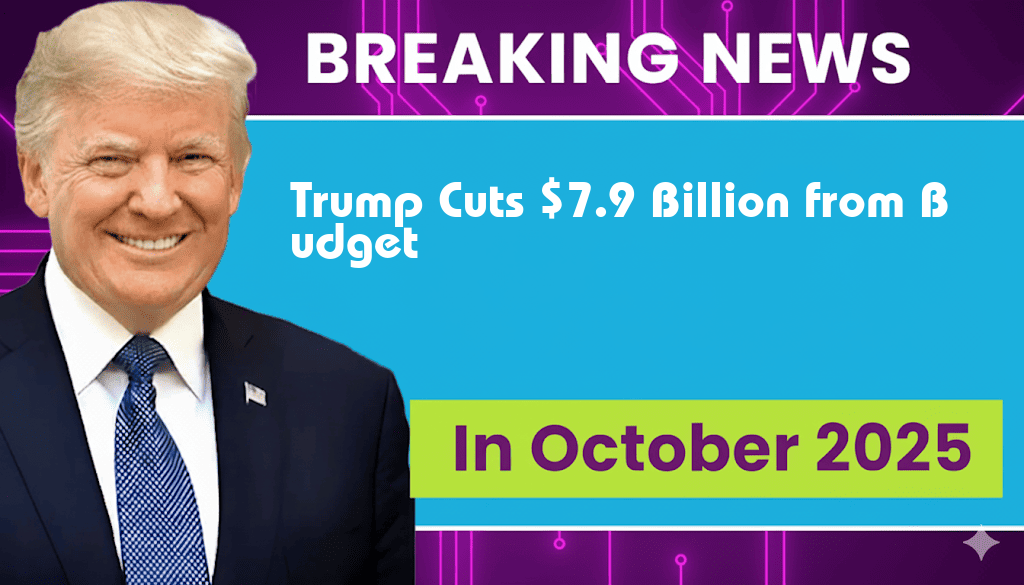In a significant budgetary move, former President Donald Trump has enacted the Rescissions Act, which aims to cut approximately $7.9 billion from the federal budget. This legislation, introduced in the wake of ongoing debates about government spending and fiscal responsibility, targets funds that were previously allocated but remain unspent. The act has garnered mixed reactions, with proponents praising it as a necessary step towards reducing national debt, while critics argue it could hinder essential services and programs.
Details of the Rescissions Act
The Rescissions Act was designed to streamline government expenditures by eliminating funds that are no longer deemed necessary. Trump’s administration justified the cuts by citing an urgent need to address the growing federal deficit, which has been a point of contention among lawmakers.
Specific Cuts and Their Implications
- Education Funding: The act proposes a reduction of $1.5 billion in federal education grants, a move that raises concerns about the impact on schools already facing budget constraints.
- Health and Human Services: Approximately $2 billion will be rescinded from various health programs, prompting fears about the potential effects on public health initiatives.
- Infrastructure Projects: Funding for several infrastructure development projects will also see cuts, which advocates argue could delay critical upgrades and repairs.
Political Reactions
The response to the Rescissions Act has been polarized. Supporters, primarily from Trump’s Republican base, laud the decision as a necessary fiscal reform. Representative Kevin McCarthy stated, “We must prioritize our spending and ensure taxpayer dollars are used effectively.”
However, Democrats and some moderate Republicans have expressed strong opposition. They argue that cutting funding to essential services could disproportionately affect vulnerable populations. Senator Chuck Schumer criticized the act, claiming it would “harm the very programs that help Americans in need.”
Potential Consequences for Federal Programs
Several federal programs could face immediate repercussions from these cuts. The following table outlines some of the key areas affected and the estimated savings from the Rescissions Act:
| Program | Estimated Cut |
|---|---|
| Federal Education Grants | $1.5 billion |
| Health Programs | $2 billion |
| Infrastructure Projects | $1.2 billion |
| Environmental Protection | $800 million |
| Public Safety Initiatives | $2.2 billion |
Public Opinion
Public sentiment regarding the Rescissions Act appears to be divided. A recent poll conducted by the Pew Research Center indicates that while a majority of respondents (57%) support reducing government spending, a significant portion (43%) believes that cuts should not come at the expense of vital services.
As the effects of the Rescissions Act unfold, stakeholders across the political spectrum are keeping a close watch on how these budget cuts will impact everyday Americans and the broader economy.
Future Outlook
The long-term implications of Trump’s Rescissions Act remain uncertain. Analysts predict that if these cuts are implemented without careful consideration of their effects, they could lead to increased public outcry and further political polarization. The debate is likely to continue as Congress assesses the viability and consequences of the enacted cuts.
For more information on the Rescissions Act and its potential impacts, you can visit the Wikipedia page or view detailed analyses on Forbes.
Frequently Asked Questions
What is the purpose of Trump’s Rescissions Act?
The Rescissions Act aims to reduce federal spending by cutting $7.9 billion from the budget, reflecting the administration’s priority to limit government expenditures.
How much funding is being cut under the Rescissions Act?
The total funding cut under the Rescissions Act amounts to $7.9 billion, impacting various federal programs and agencies.
Which programs are affected by the budget cuts?
The budget cuts target several programs, including those in the areas of education, health, and environmental protection, although specific details vary depending on the final implementation.
What are the potential impacts of these budget cuts?
The impacts of the budget cuts could include reduced services and funding for programs that rely on federal support, which may affect communities and organizations nationwide.
How will the Rescissions Act be implemented?
The implementation of the Rescissions Act will involve a review process by Congress, where the proposed cuts will be debated and voted on before taking effect.
